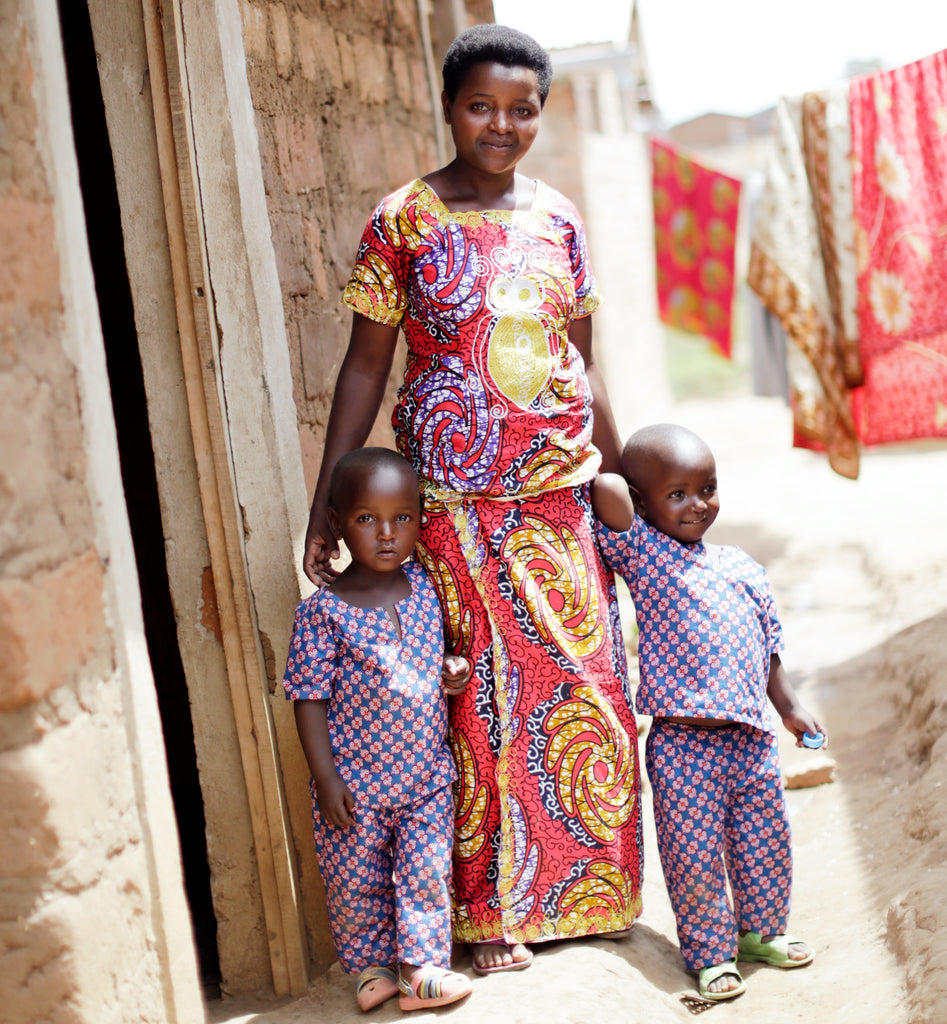On March 21st, five days after the first case of Covid-19 was identified in Rwanda a strict nationwide lockdown was declared. Unable to leave their homes, our artisan partners found themselves unexpectedly locked out of their cooperative workplaces and livelihoods.
As an organization committed to deep engagement in the communities we work in, our local team in Rwanda was in touch with our artisan partners throughout the lockdown to help address the effects the pandemic was having on their lives. In mid-April, our Rwandan team conducted a Covid-19 survey by phone with 40 women from eight different cooperatives across the country including two cooperatives at the Mahama and Kigeme Refugee Camps.
Betty of the Imirasire Cooperative noted that, “the challenges are that cross border commerce has stopped, we as the cooperative have stopped working that means in general we have no income and that means there is no development as the crisis came in abruptly”.

The economic fallout from this pandemic is global, and this time of uncertainty and isolation has not only taken a financial toll on our partners, but an emotional toll as well:
- During the Rwandan government quarantine (March 21st - May 4th), only 15% of women surveyed were able to earn an income and 55% of cooperatives were able to offer some financial support to their members from their savings.
- With 75% of our artisan partners being the primary earner of their family, a pause in income is not sustainable for their family’s basic needs, educational needs, and health needs.
- When asked how life has changed since Covid-19 entered Rwanda, many of our partners echoed the sentiments of Odette from the Ngwino Cooperative, “I used to live on weaving and [now] I am not doing it, I was an independent woman but I am no longer that woman. I have no money for the health insurance of my family; in all cases life has changed.”
It has been said that experience is the best teacher. While this pandemic has been a “bitter pill to swallow”, as Francine of Urungano Cooperative put it, 93% of the women surveyed expressed the biggest lesson learned from the Covid-19 crisis is a need to increase and better manage their personal savings.
With a population of 12.3 million people, Rwanda has been one of the leaders on the continent for it’s immediate and robust nationwide health response to the pandemic. According to the Rwandan Embassy, there have been 636 confirmed cases in the country as of June 17th. While Rwanda has been able to successfully contain the virus within its borders, for the most part, many Rwandans were not prepared for the abrupt societal and economic halt of the country and many have been left vulnerable by the pandemic.

Community based, women-owned artisan cooperatives play an important role across Rwanda in generating employment, improving quality of life, and reducing intergenerational poverty.
As of May 4th when the Rwandan government eased the lock-down restriction, 83% of the women surveyed were able to travel to their cooperatives immediately and begin working on a purchase order provided by Indego Africa. By June 6th, as the artisans in refugee camps were able to secure raw materials outside the camp, 100% of our artisan partners across Rwanda were back to work with social distancing in place (including in some cases, rotation of artisans per day).
During this period of global economic uncertainty, Indego Africa has committed to take on additional commercial risk. In order to provide steady purchase orders to our artisan partners we will build and hold additional inventory to sell through in the future. Our mission at Indego Africa has always been financial empowerment for artisan women through market access and education – this will not be put on pause.
A heartfelt thanks to the Francine A. LeFrak Foundation - a committed partner since 2015 - for providing job creation and business training to 200+ genocide survivors, unemployed youth and refugees in Rwanda.



